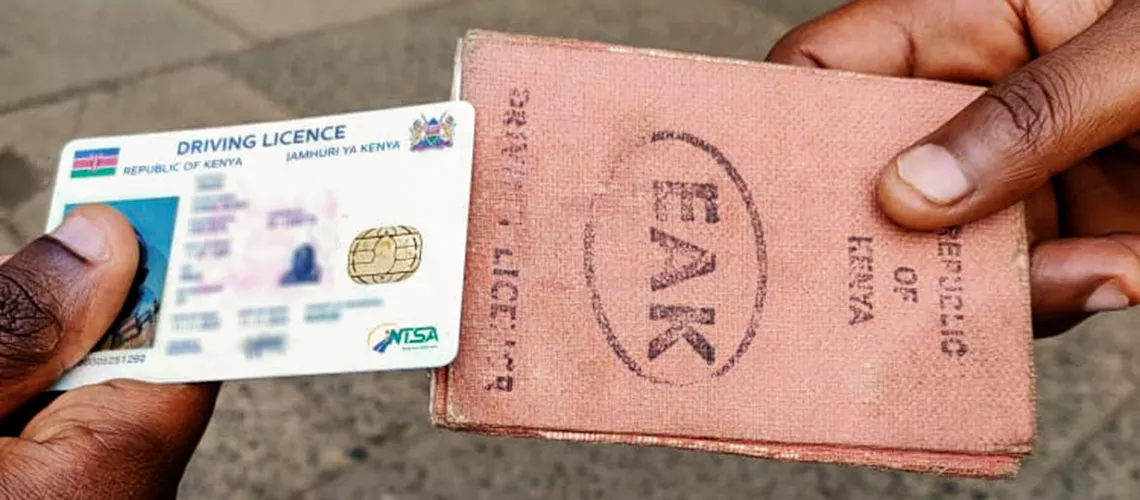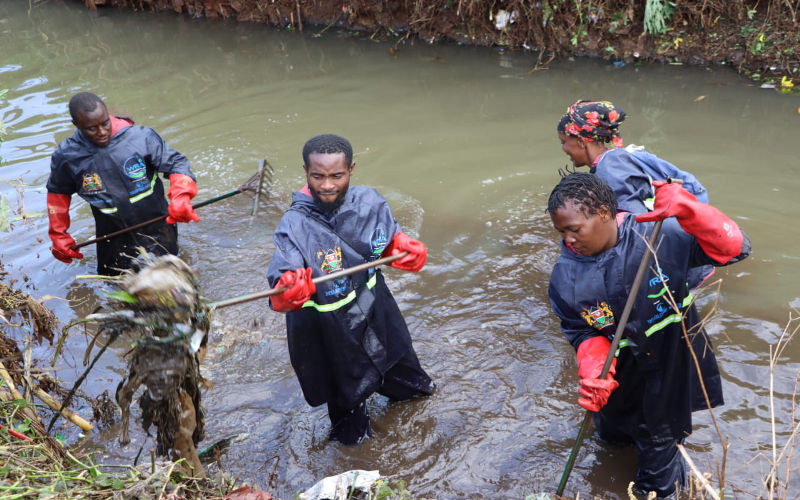Illegal gear costs Lamu fishing sector Sh70 million annually
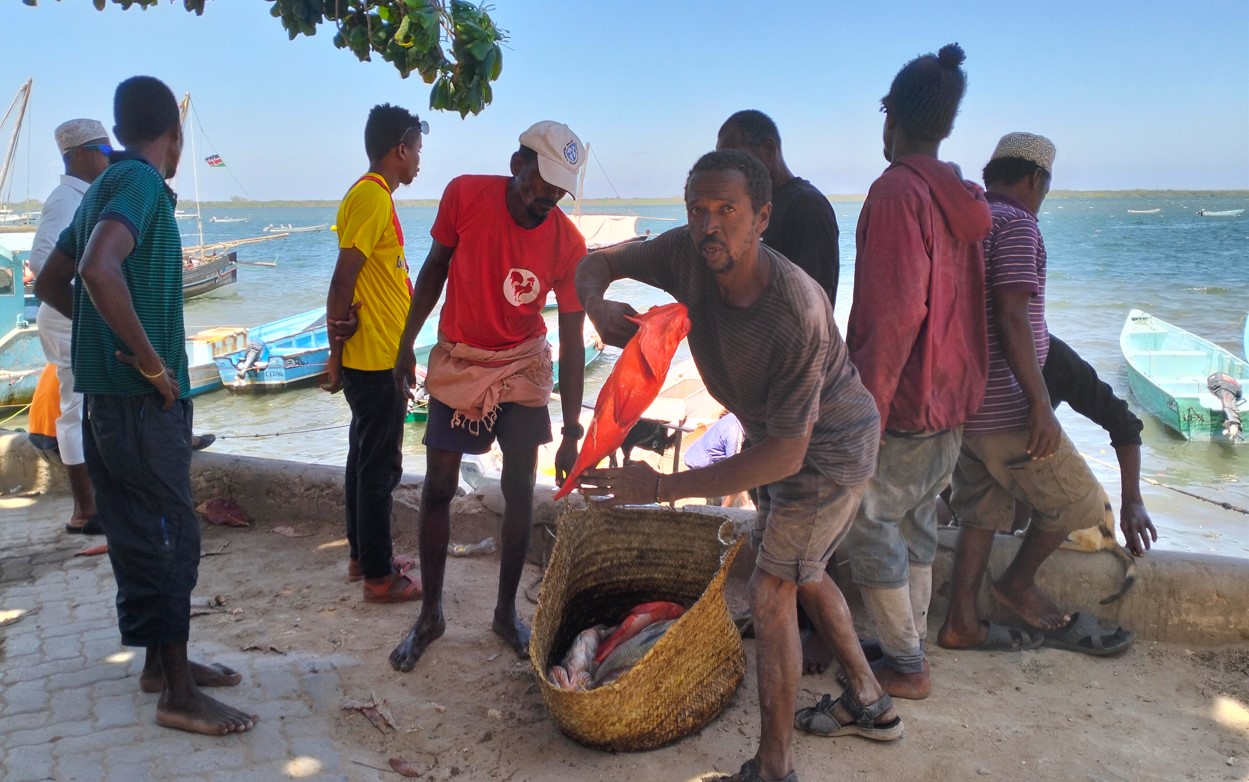
The region has been recording an annual stock decline of about 96 per cent, especially of the tigerfish species annually, which is one of the most sought-after sport fishes in Africa.
The use of illegal fishing gear in the Indian Ocean and dredging have led to declining stocks in Lamu County, with fishermen counting losses of up to Sh70 million annually.
This is according to statistics from the Lamu County Department of Fisheries, which indicate that the region has been recording an annual stock decline of about 96 per cent, especially of the tigerfish species annually, which is one of the most sought-after sport fishes in Africa.
More To Read
- Lamu fishermen decry harassment, accuse government of unfair fishing rules
- Lamu fishermen laud establishement of new cold storage facility in Kiwayu
- Search continues for missing Watamu brothers lost at sea amid calls for rescue boats
- Kilifi fisherfolk demand direct access to fishing gear, decry unfair distribution by local leaders
- Kenya leads Indian Ocean oil spill drill to boost regional marine emergency readiness
- Kilifi residents urged to stay safe as strong winds and high waves threaten coastline
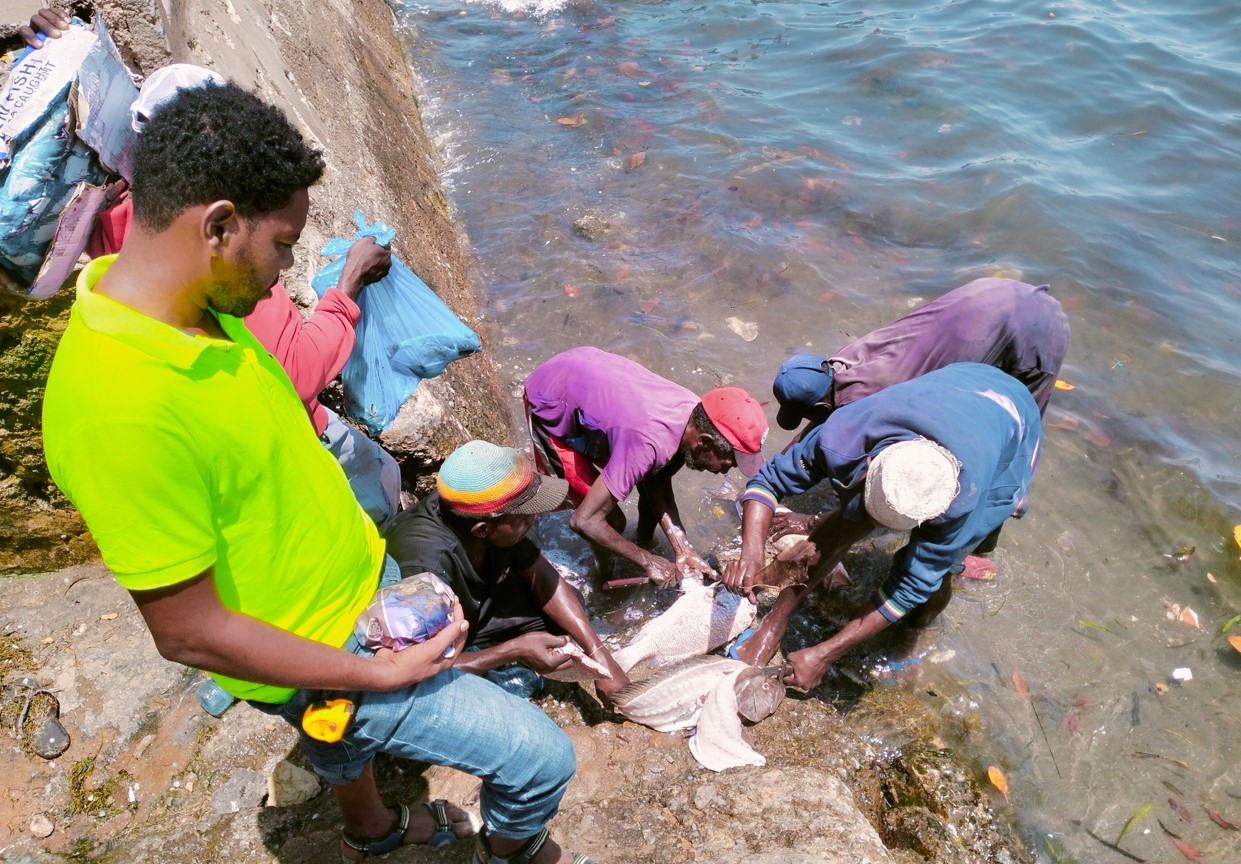 Lamu fishermen display their catch on July 7, 2024. (Photo: Farhiya Hussein/EV)
Lamu fishermen display their catch on July 7, 2024. (Photo: Farhiya Hussein/EV)
County Fisheries Officer Simon Komu revealed on Monday that initially, Lamu would produce an annual catch of between 300 to 400 tonnes of tigerfish from the Indian Ocean, with a kilo fetching Sh200 on the local market. That means Lamu would get at least Sh80 million every year just from the sale of tigerfish.
The catch has, however, reduced drastically to between 10 to 15 tonnes annually, a situation that is entirely attributed to the use of illegal fishing gear.
“Today, we are getting only Sh3 to Sh4 million every year. The poor fishing methods in our ocean have swept the ocean bed, destroyed reefs and food used by these fish species, hence making them extinct."
 County Fisheries Officer Simon Komu during an interview on July 7, 2024. (Photo: Farhiya Hussein/EV)
County Fisheries Officer Simon Komu during an interview on July 7, 2024. (Photo: Farhiya Hussein/EV)
He stressed the need for fishermen to use the right methods for their own good, noting that the use of monofilament and seine nets is harmful as they sweep away everything, from mature fish to fingerlings. This adversely affects the general fish production in the county and country.
“The use of these nets hurts fish production. I advise our fishermen to avoid them and adopt favourable fishing methods. They should also stop overfishing. Tigerfish are found in the shallow waters of the Indian Ocean where most artisanal fishers operate,” said Komu.
Fishermen interviewed by The Eastleigh Voice on Monday cited the Lamu Port (LAPSSET) dredging activities that took place some years back as a key contributor to the dwindling fish stock in the county.
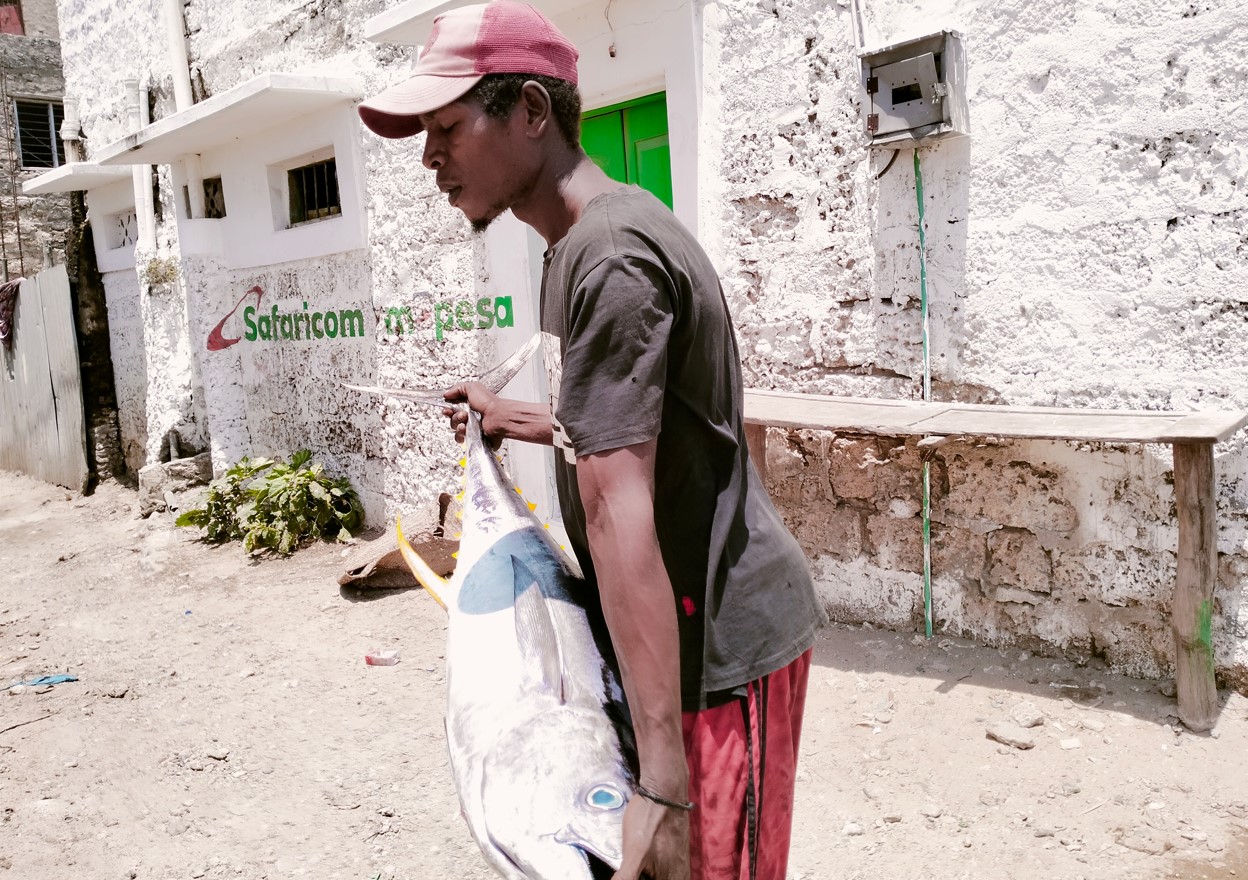 A Lamu County fisherman displays a fish caught on July 7, 2024. (Photo: Farhiya Hussein/EV)
A Lamu County fisherman displays a fish caught on July 7, 2024. (Photo: Farhiya Hussein/EV)
Mohamed Bahero mentioned fishing grounds like Kililana-Manda-Toto, Manda-Bruno, and Mkanda channels, as well as those within the Mtangawanda area as the worst affected.
He said since dredging took place to allow the construction of the Lamu port between 2012 and 2018, their fishing grounds have been destroyed.
“We can’t operate our small boats anymore because the water in the affected places is turbulent. Dredging has also affected breeding sites and fish eggs were destroyed leading to the current less fish catch."
Salim Bwanaheri, a fisherman with over 20 years’ experience in the Lamu ocean waters, called on the county and national governments to equip them with modern gear to enable them to explore deep sea fishing.
Top Stories Today

